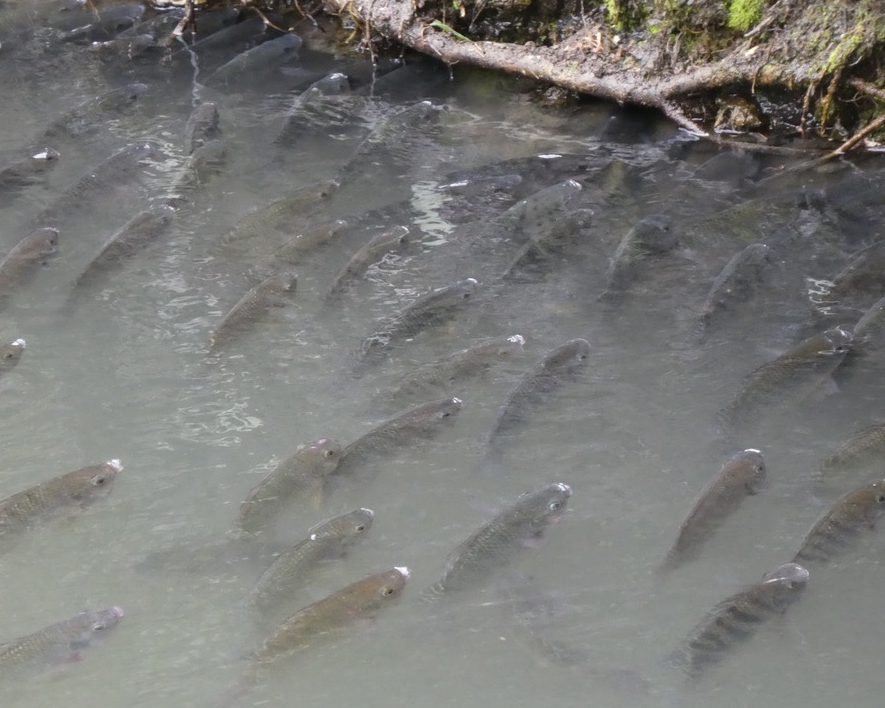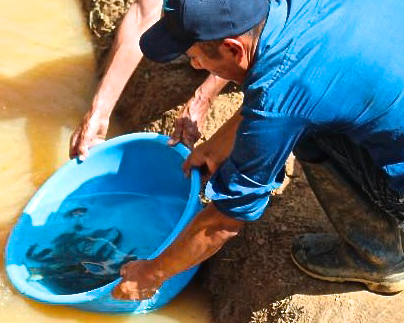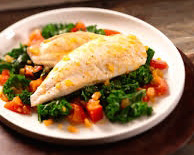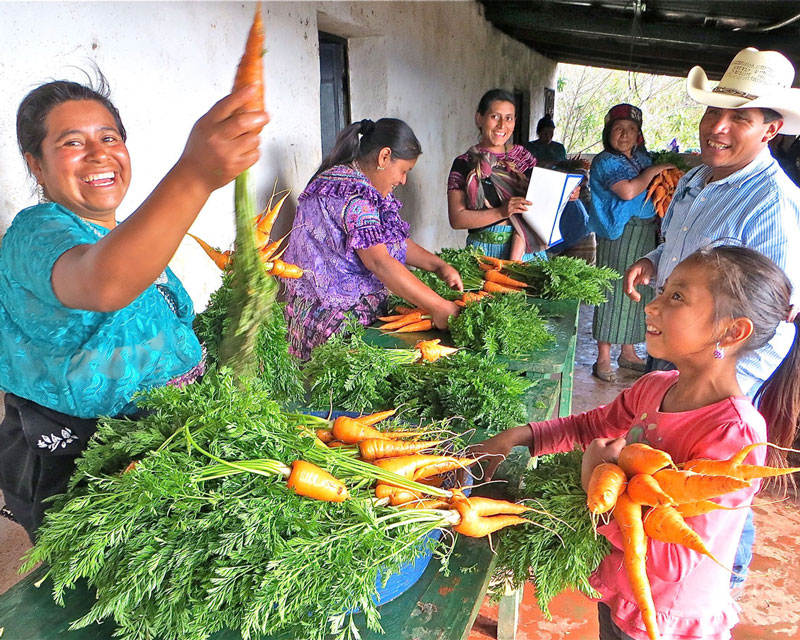
Baja Verapaz: Health Education – GUATEMALA
The UN World Food Program says that in Guatemala “the face of hunger and poverty is indigenous, young, and rural”. Baja Verapaz: Health Education is working with exactly these people. They are fighting malnutrition by teaching families to grow vegetable gardens, plant fruit trees, vaccinate and raise chickens, and increase corn and bean harvests. The Baja Verapaz Health Education Program exemplifies a unique coordination of efforts between its work in nutrition and health and its agriculture program. Baja Verapaz Health Education Program calls this ‘Agrosalud’.
Working rural families, especially the women, to increase food production is urgently important because for the whole country of Guatemala, the rate of stunting in children under 5 is 46.5%, which is the highest in Latin America. However, in the predominately indigenous Maya state of Baja Verapaz where the program is working, stunting in children under 5 presently exceeds 50 percent. (World Food Program – 2023)
Program Activities
Most of the practices taught by Baja Verapaz Health Education Program are multi-purpose and complement each other.
Vegetable Gardens
Growing a communal vegetable garden is an excellent way to start work with village women and an important part of the Agrosalud. The program promoters work with about 200 women a year in vegetable gardens. For a new group of women, large community gardens are useful to teach how to grow a variety of vegetables. Later most women are able to grow vegetables on their own home gardens.
For success in organic, high-yield, resilient vegetable growing, many steps must be taught:
- Soil preparation, including contouring, and making and using compost
- Planting and weeding
- Controlling pests with homemade organic pesticides
- Harvesting and washing the vegetables
- Cooking classes with new recipes

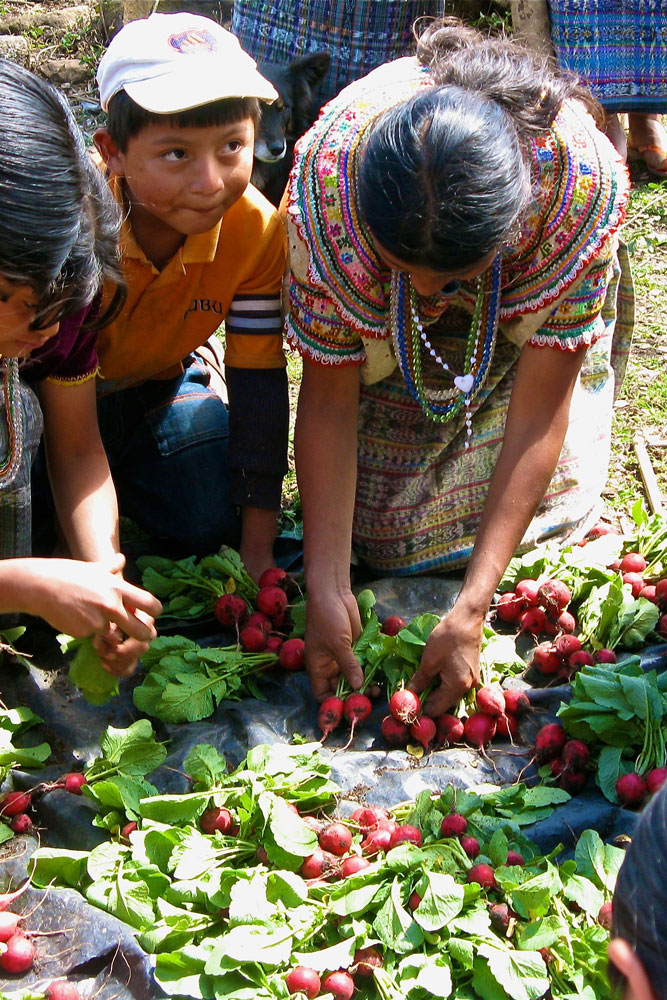
Traditional Vegetables Especially leafy greens
Once farmers begin to farm their corn and beans organically and stop using herbicides, the native greens and volunteer food plants that Mayas have eaten for centuries come back! These traditional foods are very nutritious, resilient in adverse growing conditions, and are usually not attacked by pests. The Baja Verapaz Health Education Program promotes esteem for these “free” foods, teaches their nutritional value, and even demonstrates new recipes for using them.
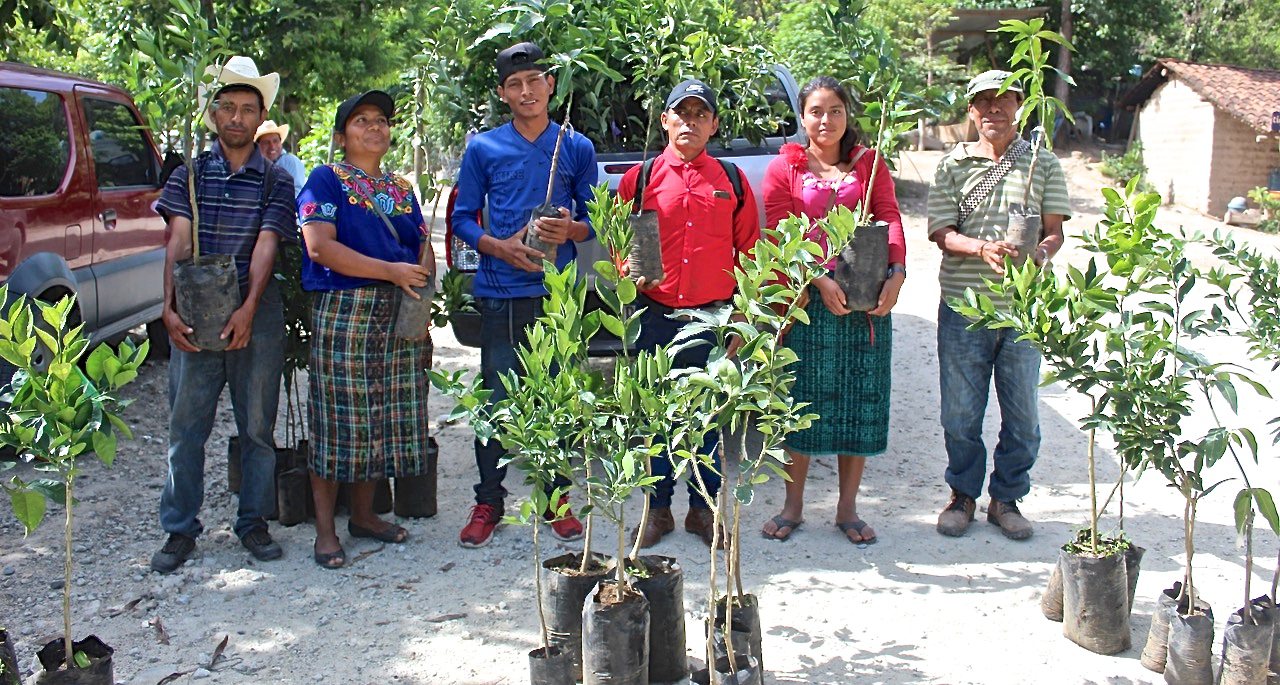
Fruit Trees
Planting fruit trees gives families more nutritious food where food security is a serious problem and many children do not have enough nutritious food. Women usually plant fruit trees around their houses where they can easily care for them and harvest the fruit. During the summer (Invierno or rainy season) of 2023, women planted 375 grafted fruit trees bought from a nursery, plus many more native fruits like local bananas, loquats, various kinds of berries, pacaya, etc.) Winters are mild in Baja Verapaz so most families like to plant several kinds of fruit, which enables them to havest fruit year-round.
Mothers are aware that fruit makes a much better snack for their kids than the candy, soft drinks, and chips sold in all the local stores, but often fruit is just not sold in these small stores or it is way too expensive. The increase in diversified food production definitely indicates that the children of the program’s participants will not be among those the UN Food Program found to be suffering from malnutrition!
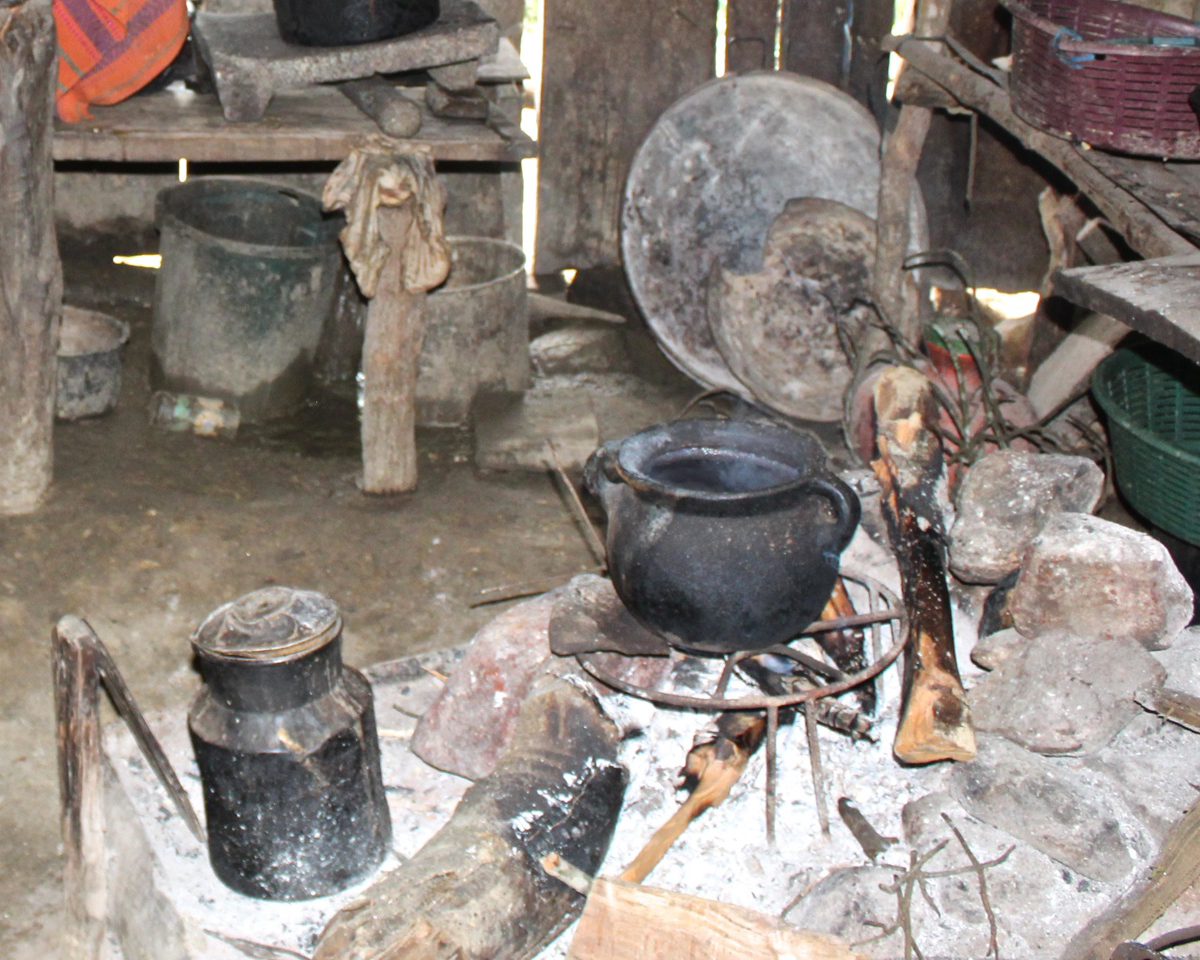
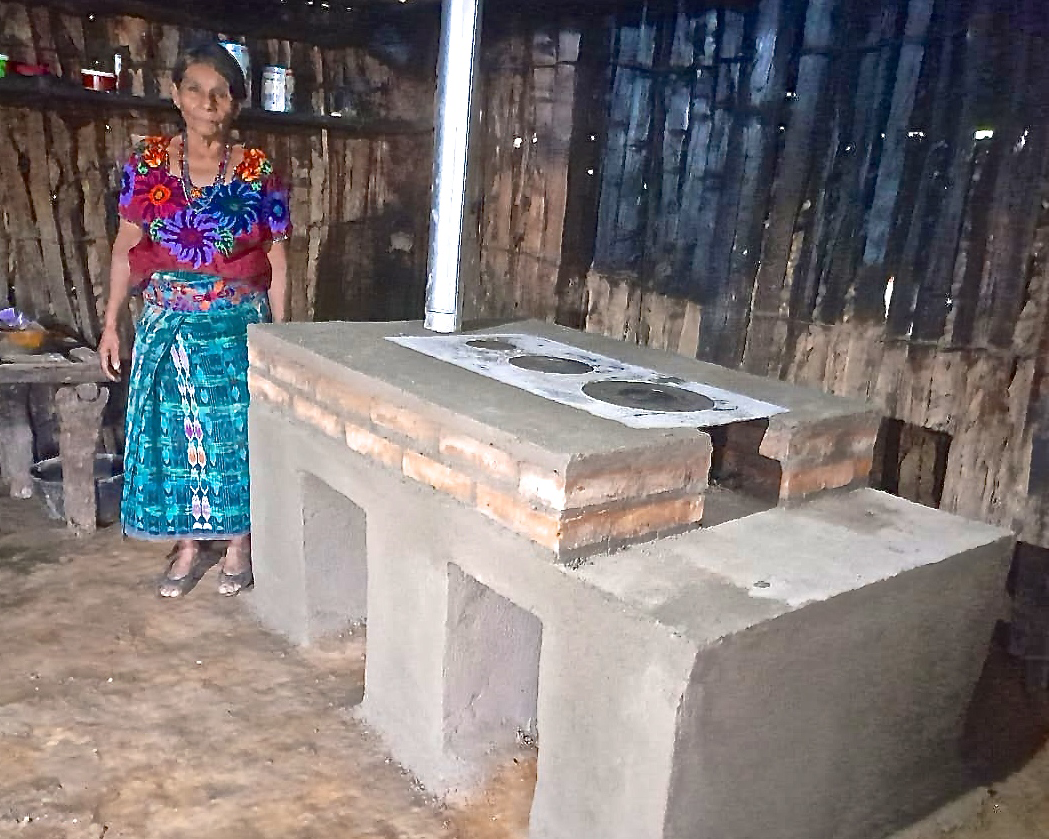
Fuel-Saving Stoves
These stoves greatly reduce the amount of firewood needed for cooking, and the chimney dramatically improves kitchen air quality. Breathing smoke causes very significant lung damage for the persons who is cooking. Cooking over an open fire with no chimney fills the kitchen with smoke that contains dangerous particulates and carbon monoxide. The World Health Organization estimates that there are 4.1 million premature deaths per year due to respiratory problems caused by indoor cooking. Women who have cooked over an open fire for years are particularly affected.
The fuel-saving stoves also reduce the amount of firewood used for cooking as compared to using an open fire on the floor. This is a very important complement to EPIC’s program of planting trees for reforestation. To achieve reforestation it is necessary to be planting significantly more trees than local people need to cut for cooking. Using less than half as much wood to cook also saves time and labor spent cutting, splitting, and carrying wood.
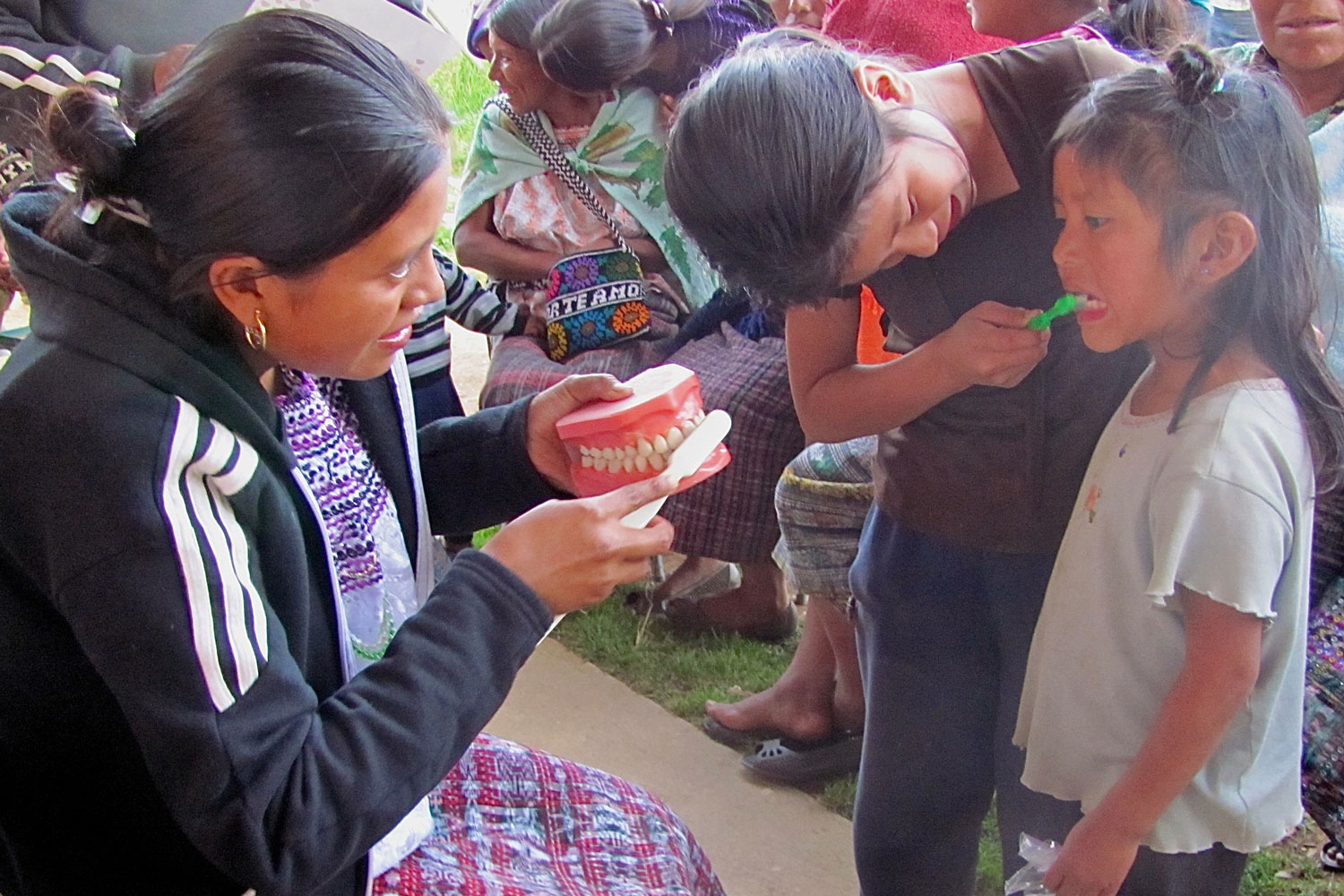
Dental Hygiene
In Guatemala, the introduction of soda pop, cheap candy, and little plastic bags of frozen sugar water has been terrible for children’s teeth. In the remote parts of Baja Verapaz where the promotors are working, these sugary snacks were not being brought in until 20 to 25 years ago. The unavailability of dental care and little tooth brushing compound the situation. It is easy to skip brushing children’s teeth when one toothbrush costs 1/4 of a man’s daily wage, and no one has ever emphasized the importance of brushing. Now children have more cavities than adults. The Baja Verapaz Health Education promoters teach children to brush their teeth correctly and to make their own toothpaste. Eating lots of candy and drinking soda pop is constantly strongly discouraged.
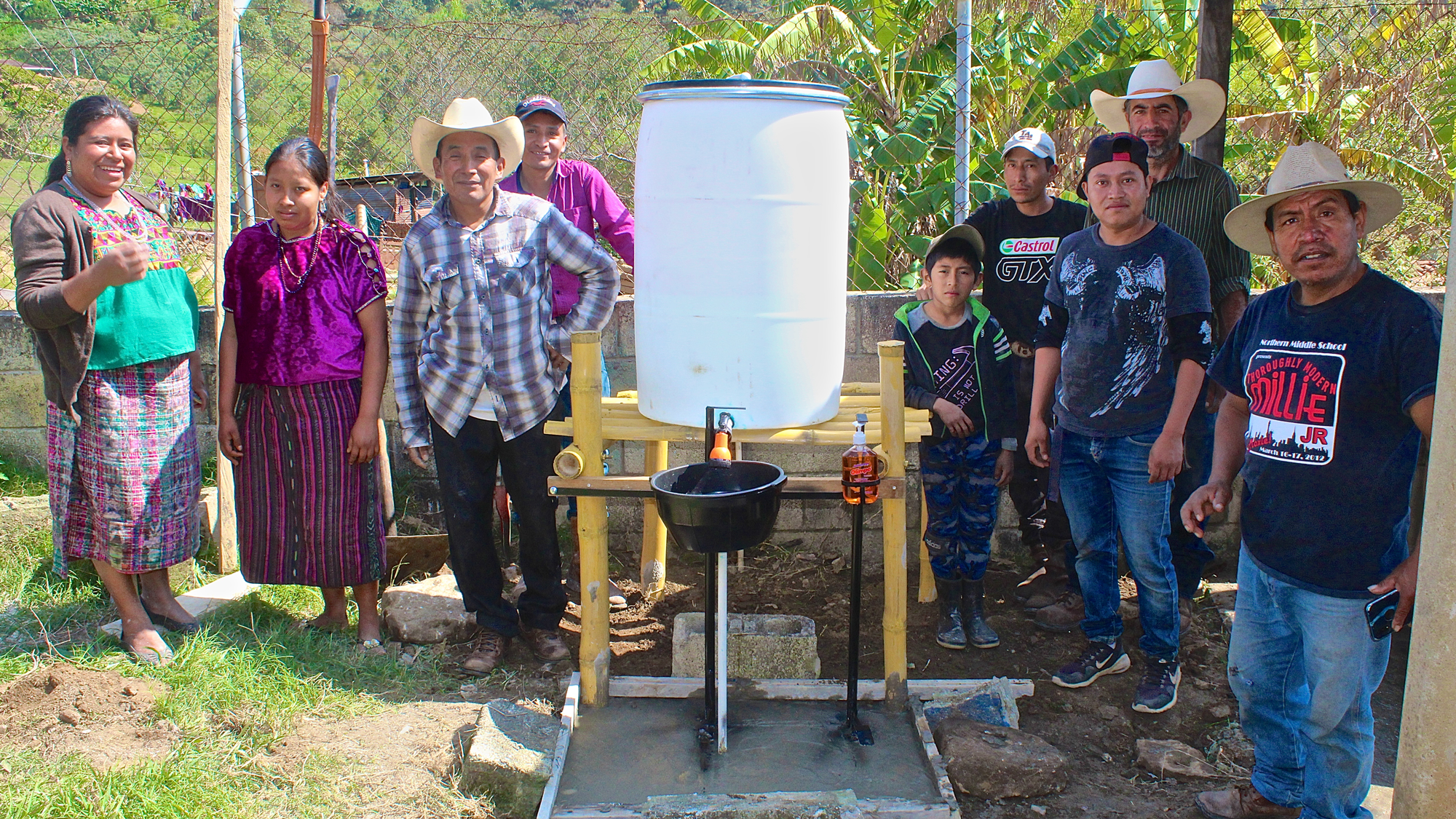
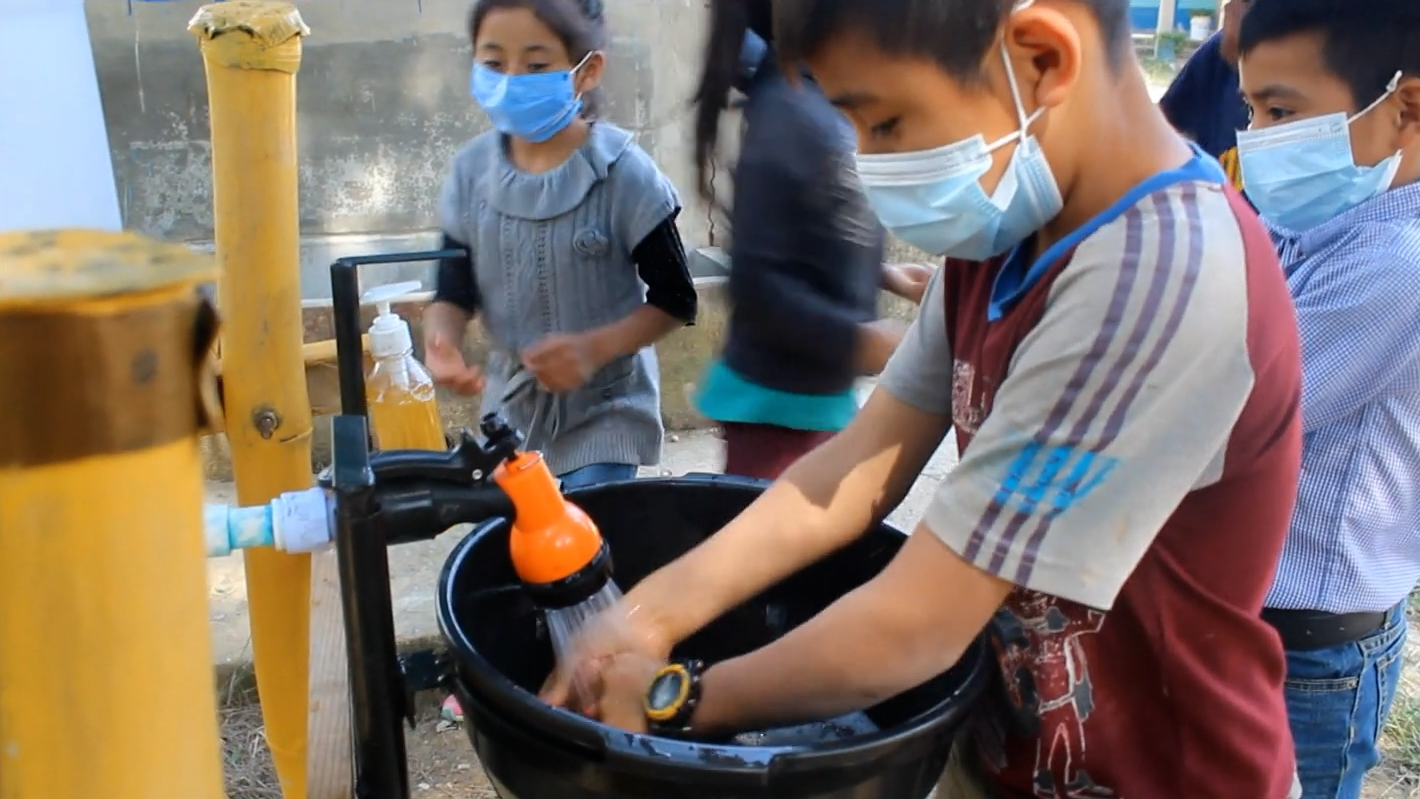
Hand-washing Stations for Schools
In very rural Guatemala some schools have latrines, but no place for children to wash their hands. Being able to wash hands prevents diseases from Covid to the flu to parasites. In 2022, EPIC’s program in Baja Verapaz, Guatemala, worked with teachers and parents in 20 rural schools to build hand-washing stations. They have been very well accepted by the students and more schools are asking for them. More hand-washing stations are scheduled to be built in 2023.
The hand-washing stations were designed by Armando, the Baja Verapaz Program Director, for the specific needs of the various school locations, including where water could be obtained. The children think it is fun to control the water and soap with two-foot pedals and the teachers appreciate that it keeps water use to a minimum.
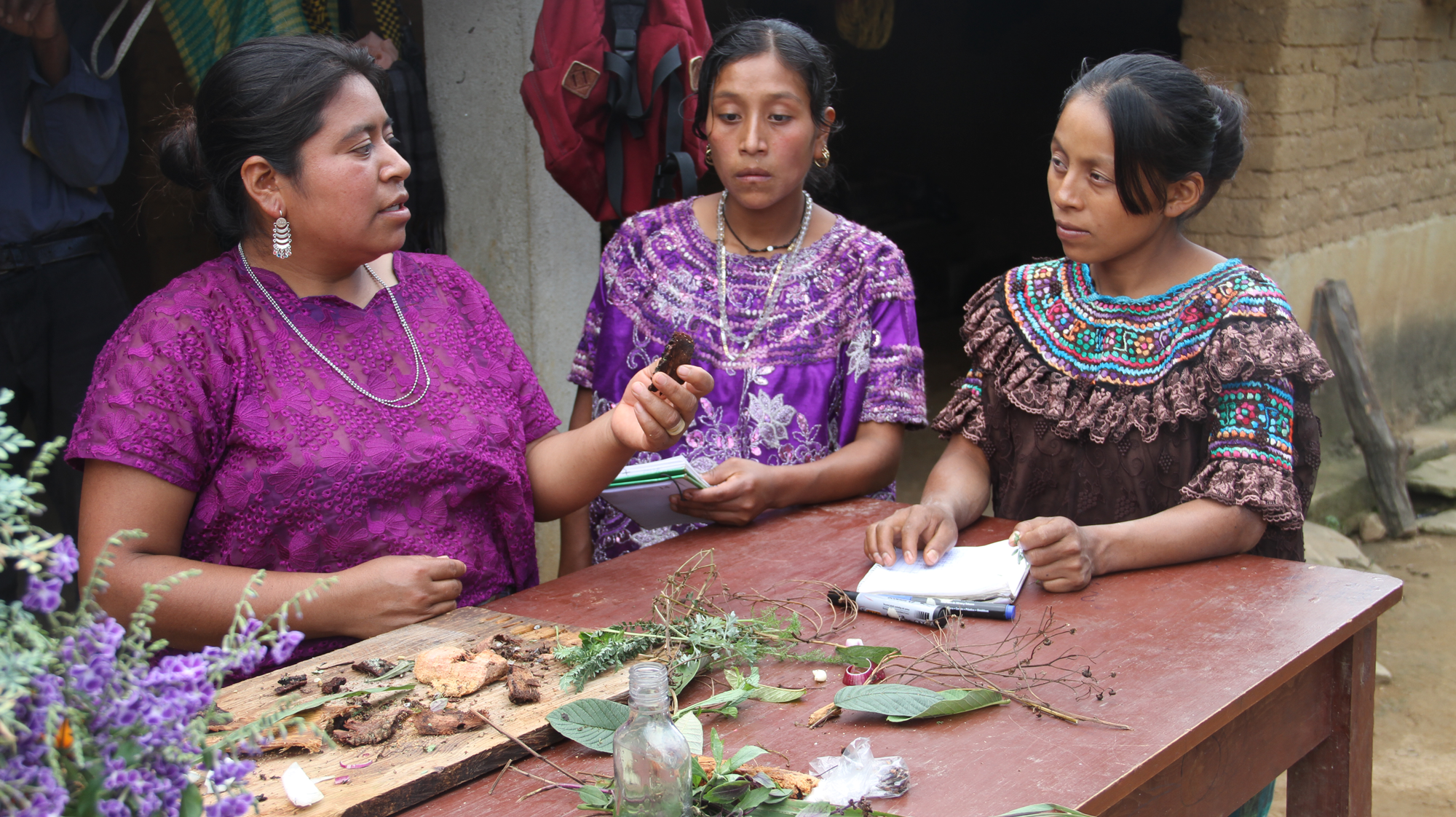
Preparation of Herbal Medicines
The program also have classes for women’s groups on the preparation of herbal medicines for some of the most common, but less serious, health problems. These included creams for skin rashes, nasal congestion, and muscle pain, and tinctures for headaches, upset stomach and intestinal parasites. The women find these classes fun and empowering because money isn’t available for medicines, except in the case of very serious illness, and a visit to the distant municipal Health Clinic is seldom practical for less serious but frequent health problems and illnesses. The classes on herbal medicines have great attendance, and women are able to participate fully because most classes are in their Achí Maya language.
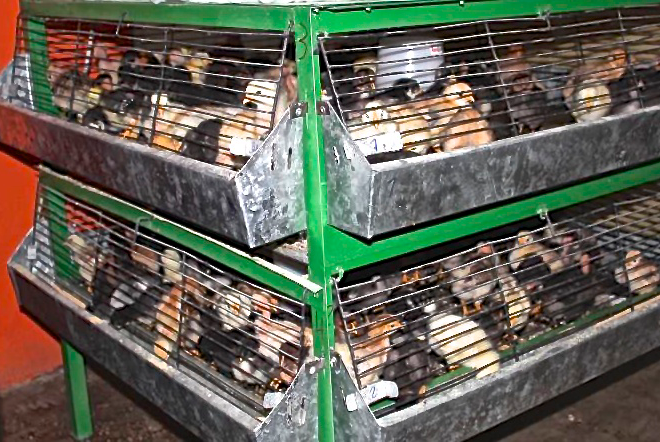
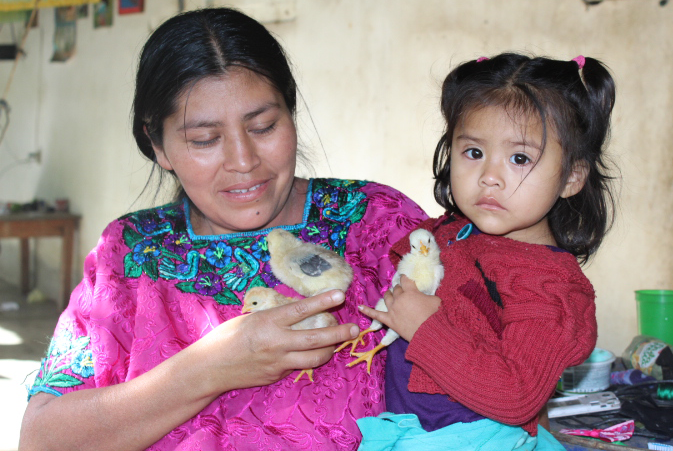
Chicken Projects
Families learn to build corrals for their poultry that include nest boxes and a roofed area to protect the birds from rain If chickens, turkeys and ducks are kept fenced in rather than running loose, it becomes possible to grow a vegetable garden. The women saw that if chickens were allowed to run freely, they ate up all the gardens. With corralled poultry, it is possible to collect the manure which can then be used to provide nitrogen for compost piles. The compost will be used for growing more vegetables and the extra vegetable leaves and waste is fed to the chickens. The program’s program to vaccinate poultry reduces their mortality, and the families have more eggs and meat for special occasions.
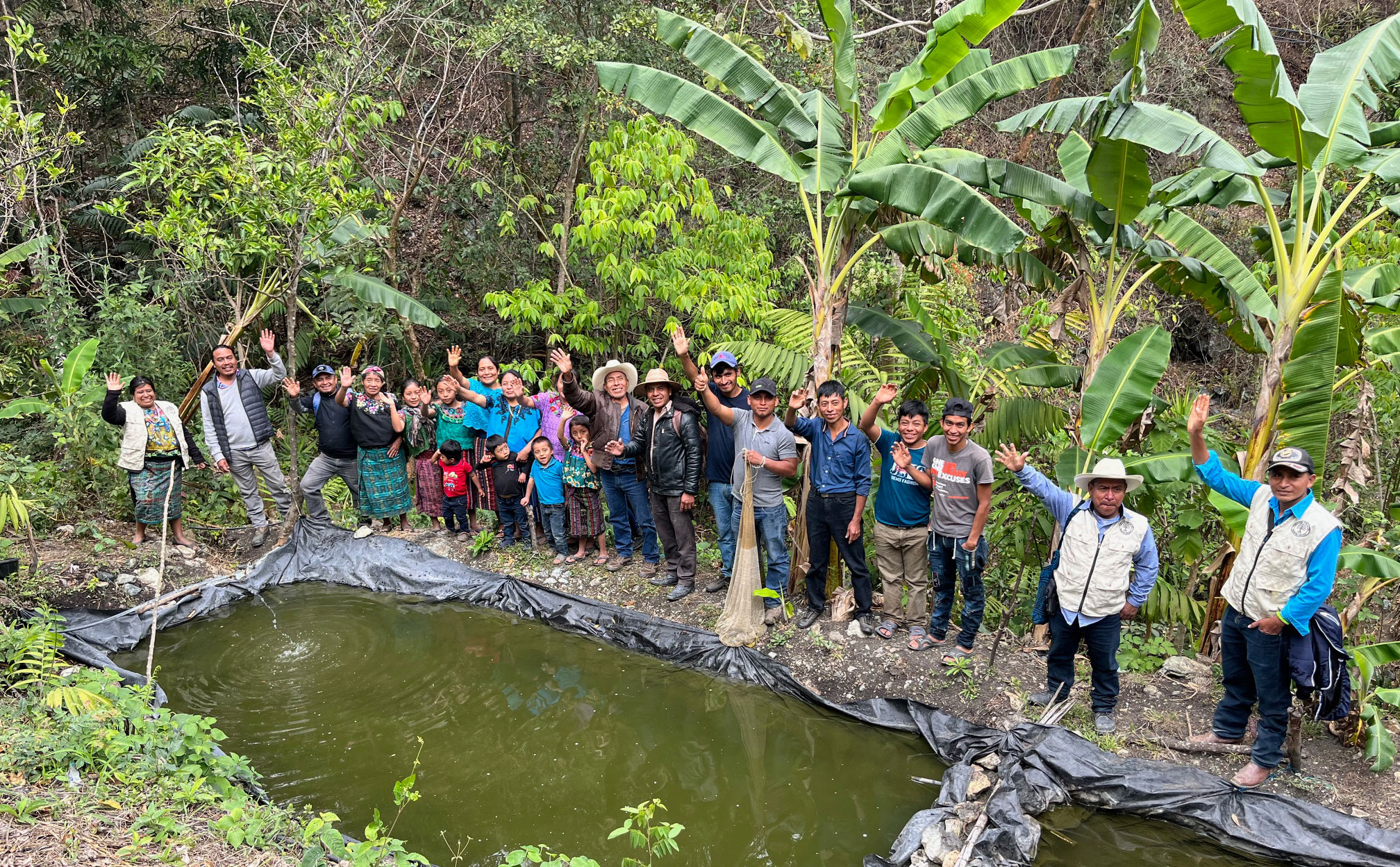
Fish Ponds
EPIC’s health and agricultural promotors are teaching people to raise fish in family and in community fish ponds. The family or a group of neighbors dig the pond, and EPIC program staff provides instruction on caring for the pond and raising fish. Then about 150 small fish, called fingerlings, are bought from another fish farmer to stock the pond. These fingerlings grow and reproduce to fill the pond, and families can then harvest one to several fish for a dinner and leave the rest to continue growing. The fish pond becomes part of an ecological cycle where farm waste products can become food and fertilizer. Telapia is a fish that is easy to raise in Central America, and a pond can continue to provide food for years.
Many children suffer from malnutrition in the regions of Guatemala and Honduras where EPIC is working. They usually are especially deficient in protein because it is the most expensive part of the diet. Fish can provide children with much needed protein, and eating fish is considered very special.
